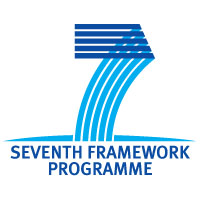- Tecnologias Avanzadas Inspiralia SL - Spain,
- Turkiye Ziraat Odalari Birligi Iktisadi Isletmesi - Türkiye,
- Mgh Gutes Aus Hessen GmbH - Germany,
- Biopac (UK) Limited - United Kingdom,
- Rodenas Y Rivera SA - Spain,
- Asociacion Empresarial de Investigacion Centro Tecnologico del Calzado y Delplastico de la Region de Murcia - Spain,
- Stichting Wageningen Research - Netherlands
The consumption of plastic materials in agriculture and horticulture in EU has dramatically increased in the last decades posing serious problems of environmental and economic concerns. Agriculture and Horticulture sector generates about 1.2 Mt of plastic waste per year in the Europe, where almost 30% (336 Kt) are coming from accessories such as nets and clips for plant support and plastics pots and trays for greenhouses and bed-seeds. The recycling of these products is very expensive and time-consuming due to the high labour cost for the collection and the impossibility to be automatized. In addition, these products must be low-cost and stable during storage and use. So far, existing bio-degradable plastics have serious product costs and performance issues that are unacceptable to agricultural-horticultural professionals. In addition, there are no clear methods to test the migration levels of biodegradable agricultural plastics in contact with agri-food during their growth. By joining the efforts of three National Associations from Agricultural, Bioplastic and Food Quality sectors, DEGRICOL Consortium will develop cost-competitive, 100% natural-based bioplastic formulation based on a thermally stable and crystalline PLA matrix for the manufacturing of Agriculture and Horticulture accessories. Such formulation will contain natural fillers (such as lignin or chitosan) isolated from animal- and agro-residues to further reduce costs and, and bio-surfactants (humic acid-like) isolated from compost of urban food or agro-residues to improve and control the biodegradation process according to their use. In addition, These accessories, pots and clips (manufactured through injection moulding process) and tutors and nets (trough fibre-extrusion process) will have the requirements necessary to fulfil the normative EN13432 regarding biodegradation and compostability, and Directive 2007/19/CE regarding total Migration Limit of plastics in contact with food-products.
Want to analyze based on this project via our analysis tool? Analyze this project
Knowledge Gaps
Degradation
Characterization test methods




